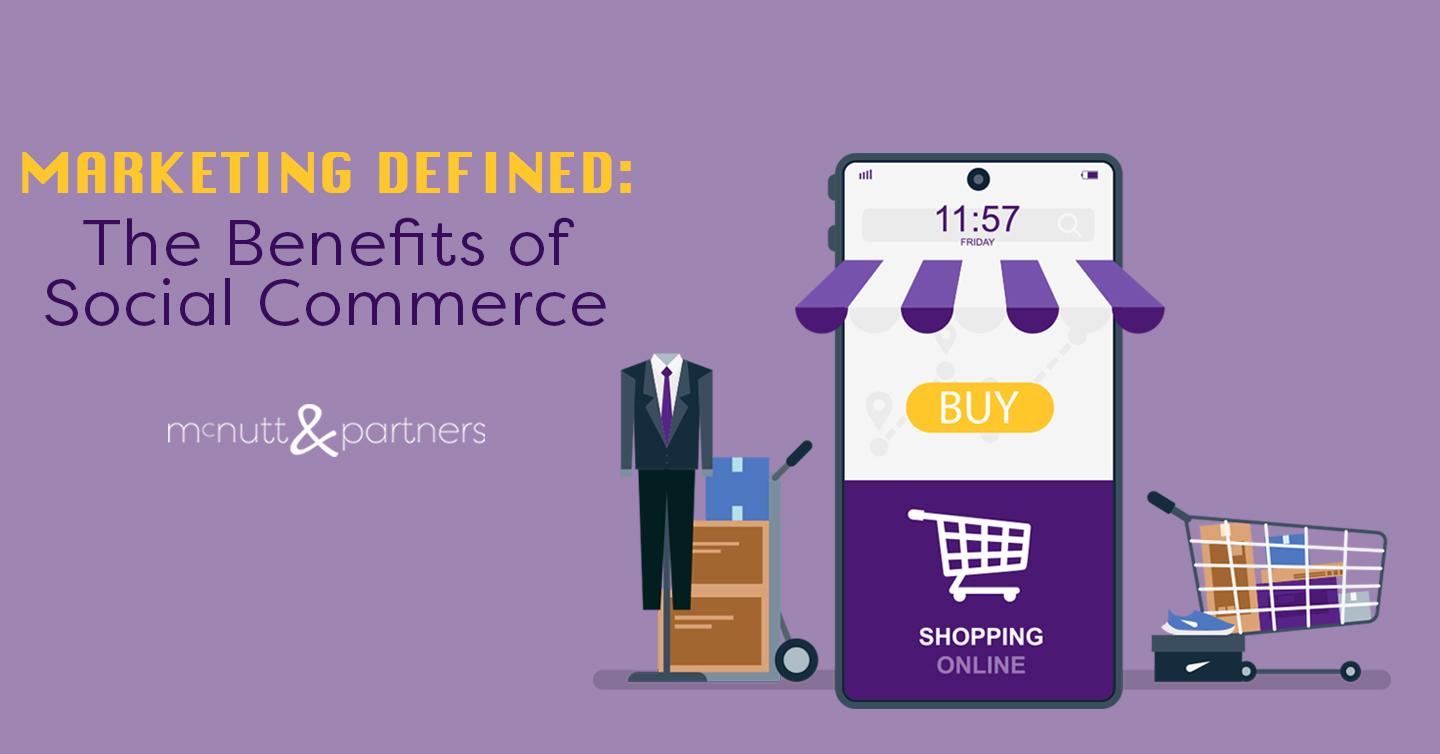You know what commerce is. You likely know what e-commerce is. Now it’s time to talk about another type of commerce: social commerce. The benefits of social commerce for businesses and consumers alike are evident as social media is such a driving force in today’s society.
What is social commerce?
“Social” plus “commerce” equals, you guessed it—conducting business on social media.
Where human beings interact, human beings will do business. It only makes sense that as social media has become a primary means of interaction and communication for a majority of the general public, it has also become a platform for brand-to-consumer interactions.
Social commerce makes sense for a lot of businesses right now. In fact, according to Hootsuite, it’s currently an $89.4 billion market poised to grow to more than 6 billion in the next seven years. When it comes to the benefits of social commerce, the numbers say it all.
What does social commerce look like?
Social commerce is the practice of selling products or services directly to a consumer on social media. This differs from e-commerce, which refers to the sale of products via a website or dedicated brand app. With social commerce, the transaction happens on a social media platform itself.
Social platforms offer a variety of formats in which social commerce can take place. Facebook Shops, for example, is Facebook’s built-in platform for businesses to sell their products and services on the social media network. (It also works similarly on Instagram.) Facebook Shops allows you to make customized collections, incorporate your proprietary branding and showcase featured items, among other offerings.
Other platforms, like Snapchat, have their own systems for offering social commerce. Just keep in mind—it’s not considered social commerce if the consumer must navigate off of the social platform (to another website, for example) to complete the transaction.
The benefits of social commerce
It’s easy for consumers.
E-commerce allowed us to make purchases without having to get in the car and drive to the store. Social commerce offers the same thing, but it takes out the added step of having navigate to a particular website or app to do so. Giving consumers the opportunity to buy products during their daily social media browsing experiences makes it all the easier for them to shop.
Shopping becomes a social experience.
Another reason consumers gravitate toward social commerce is the fact that it is interactive. They can make comments on product posts and have brands directly respond. They can tag their friends and family to share products and ask for opinions and they can even share and show off what they just purchased. All of these opportunities are ones that are unique to social commerce as opposed to e-commerce and traditional commerce.
You can better track your consumer demographics.
Now on to some of the direct benefits of social commerce for brands themselves. When your customers buy via social networks, all of their demographic data is automatically on record for you to refer to. That’s because each customer must have a personal profile of their own to be on the social network in the first place, and that profile is telling of information like age, gender, location, interests and more.
Get instant reviews and feedback.
Think of the social platform as a one-stop-shop for the buying experience. This includes chances for buyers to instantly leave business reviews and express their feedback.
The bottom line
The driving advantage of all of these benefits? Brands can make money! Social media has proven to be a lucrative selling space and is poised to continue trending upward.
Interested in getting involved in social commerce? The McNutt & Partners team can help!
McNutt & Partners is a full-service advertising and digital marketing agency. Contact us today for your marketing needs! Call 334-521-1010, or visit our contact page.

